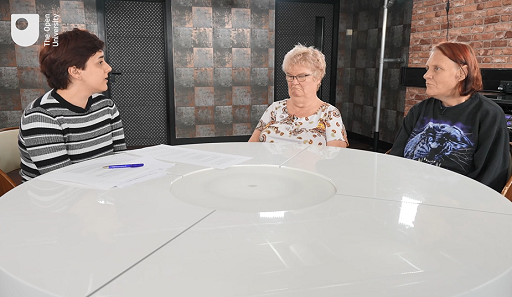2 First impressions are lasting
In your home or work life, you have probably heard or been told about the importance of first impressions. Whether we like it or not, the way we dress, behave, and say all influence the way a person perceives us at your first meeting. The team supporting Robin are aware of the lasting impression he made on the staff where he lived previously.
Activity 2 Making the first impression
Read the ‘Top Tips’ for spending time with Robin. As you read, make notes on any thoughts you have regarding the use of such tips. Think about one person you support and consider what top tips, if any, would you share if the person was meeting someone for the first time?
‘Top tips’:
- He likes please and thank you.
- He likes it when people show lots of interest in his interests like his games, DVDs, plants, cats, and treasure hunt items. It’s normally a good way to help him feel at ease as he can be a bit quiet at first.
- Use shorter sentences with time for him to process.
- He can prefer to be called Robin rather than Rob with new people.
- He can worry about death and thinks that eating 2 veg a night and taking his medication will keep him alive forever, so we explain how eventually we all die but that if we look after ourselves, we can live a longer life. He may mention people who had died and have gone to heaven.
- He may start talking about wanting a girlfriend and will use the term ‘girl’. Some people become concerned when he says he wants a ‘girl’ but he does not mean a child/young person.
- It can take him a bit of time to get to the door so he can become annoyed if people knock twice.
- Don’t talk too fast.
- Don’t take everything said as factual as Robin can get confused at times. The staff there can gently help Robin remember things as they were rather than how he wanted it to be.
- He can have some difficulty understanding abstract language/ideas like friendship, trust, freedom, rights.
- He can also find ‘soon’ or ‘later’ difficult to understand and set times usually work better with him.
- Robin is pretty chilled these days and likes to be spoken to like anyone else, just with slightly simplified language.
Discussion
You may have identified that sharing ‘Tops Tips’ is an unusual way to be introduced to someone for the first time. You may have identified that this is something you would not choose to develop for the person you are supporting.
However, in Robin’s situation, the preparation and sharing of ‘Top Tips’ is a valuable approach. Like many people with a learning disability, Robin finds some aspects of communication harder than others. His support team are aware that Robin can be shy when meeting new people and are aware of how he responds if he feels misunderstood or becomes distressed. The ‘Top Tips’ are a summary of important aspects of communication and social etiquette which Robin has communicated to the staff supporting him. Robin’s support team have prepared the research team for the first meeting with Robin to make this a positive experience for Robin as well as for the researchers.
In the next video you will hear from the panel members discussing Robin’s Top Tips.

Transcript
[INTERPOSING VOICES]
Panel members Pam and Dawn identified that the support being provided to Robin is very good and provides what he likes. Ben identifies that it is important that the vulnerabilities of people with a learning disability are considered when seeking friendships and intimate relationships and should be pursued in the safest manner possible.
